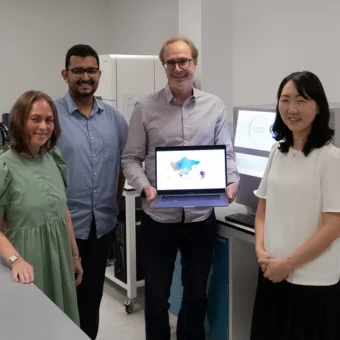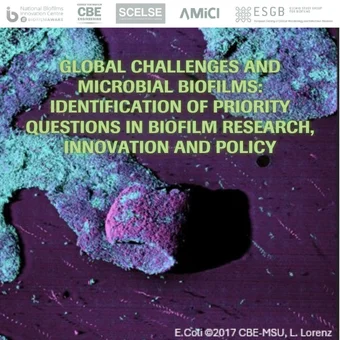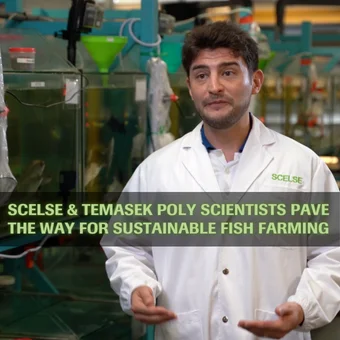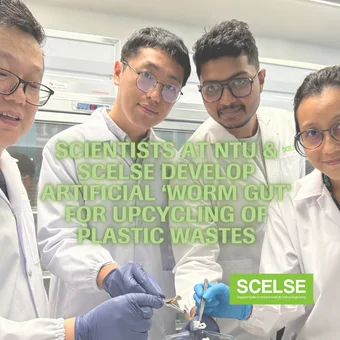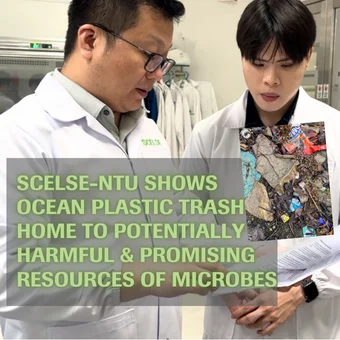Tapping into metal-eating microbes to recycle lithium-ion batteries
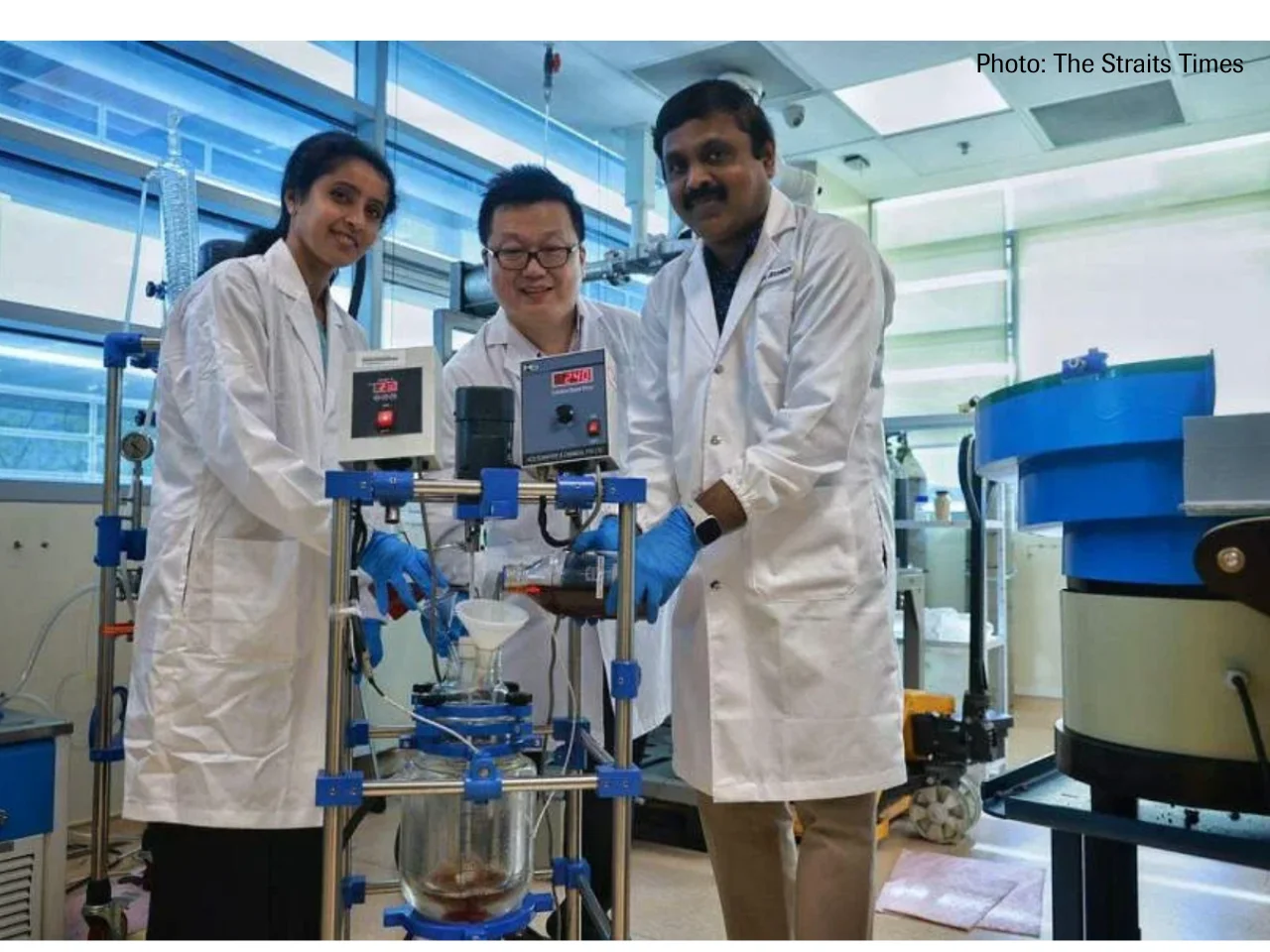
- In the Media
- 03 Apr 2023
L-R: Professor Madhavi Srinivasan, team lead; SCELSE A/Prof Cao Bin, co-leader; and Dr Joseph Jegan, senior researcher at ERI@N.
You’ve heard of black soldier flies that munch up waste -> now we have metal-munching microbes in a groundbreaking development by #SCELSE PI A/Prof Cao Bin and a team of scientists from the Energy Research Institute @ntu_sg(ERI@N). In photo, L-R: Professor Madhavi Srinivasan, team lead; #SCELSE A/Prof Cao Bin, co-leader; and Dr Joseph Jegan, senior researcher at ERI@N.
The team is working with industry to explore processing of lithium-ion battery feedstock, which is known as “black mass”. The feedstock is mixed with a liquid microbial culture that help to extract valuable materials like lithium, iron, graphite.
The reason why microbes are not adopted in the industry is due to the low amount of black mass metabolised.
A/Prof Cao Bin said: “The black mass is toxic to the microbes. And in other studies where researchers tried to add more black mass, the microbes also die.”
The team has bypassed this problem by figuring out what to feed the microbes before any black mass is added, which helps them survive for longer especially in tough conditions like high acidity. Overall, this process of recycling batteries taps less resources than mining for raw materials to produce batteries and saves energy too, since the microbes only require a temperature of 40degC compared to the industrial method of recycling batteries which requires over 1000°C.
To learn more, check out the Straits’ Times article.
